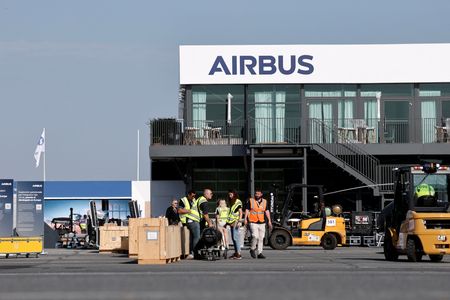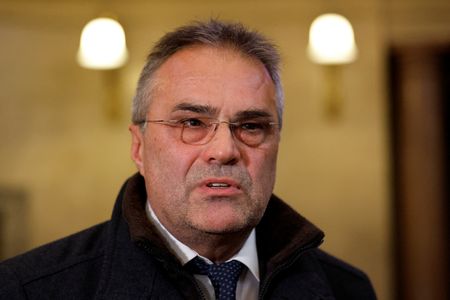(Reuters) -The weeks’ long strike by 3,000 U.S. Pratt & Whitney engine workers will constrain cash flow during the second quarter, but the aerospace and defense company should be able to recover that during the year, RTX CEO Chris Calio said on Wednesday.
Workers at two sites in Connecticut on Tuesday approved a contract offer, ending the more than three-week-long strike, where a top priority was getting Pratt to commit to keep work for Lockheed Martin’s F-35 fighters in the state.
Calio told the Bernstein Strategic Decisions Conference that the stoppage at Pratt’s unionized Connecticut factories hampered its ability to ship jet engines, and he expects break-even to negative cash flow in the quarter.
Shares of RTX, which owns Pratt & Whitney, fell 2% earlier on Wednesday, but trimmed those losses and were off 0.5% in midday trading.
The strike was the first in more than 20 years at the company’s Connecticut sites, where it produces engines for the F-35 and about 70% of the company’s geared turbofan engine, which is used in European planemaker Airbus’ strong-selling A320 NEO family of jets.
“As a result, think break even to negative cash flow in the quarter but again, recoverable in the year,” Calio said.
Suppliers of engines and other critical aircraft parts are ramping up production to meet demand from planemakers Boeing and Airbus, which are manufacturing more jets.
Calio also said U.S. President Donald Trump’s proposed Golden Dome missile defense shield was unique and an opportunity, although the fragmented nature of defense acquisition presented a challenge.
“I do think it’s going to take a whole of industry to be able to do it and do it right, and do it on the time frame that the president and the Pentagon have outlined.”
Calio said RTX continues to expect strong demand for its integrated air and missile defense products in Europe despite trade tensions.
Trump backed away this week from imposing a 50% tariff on European Union imports from June 1, restoring a July 9 deadline to allow talks between the U.S. and the 27-nation bloc to produce a deal.
Countries close to Russia such as Poland, Finland and Germany have been striking new deals to buy arms as they focus on high-volume, less costly weapons, underscoring how the war in Ukraine has reshaped strategic thinking in European capitals about how future conflicts could be fought.
“I think we are looked at as more than just a U.S. company, given the partnerships that we have there with some of the leading European defense firms and the success we’ve had in helping develop the industrial base there now,” Calio said.
(Reporting By Allison Lampert. Additional reporting by Mike Stone, Editing by Nick Zieminski and Bill Berkrot)










